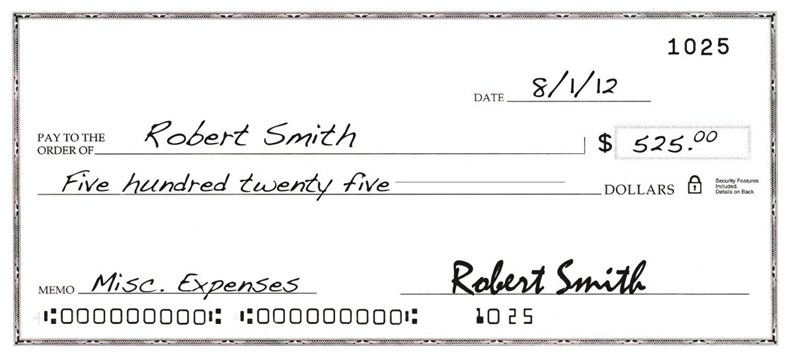When you serve on a board, sometimes you get a feeling of empowerment. After all, you bear a great deal of responsibility for how well (or how poorly) your building or HOA fares during your tenure. However, it’s important not to let that power go to your head and create a situation where you are setting yourself up for a conflict of interest dispute. Nothing undermines a community’s faith in their leadership faster than things like impropriety and self-dealing amongst the board/management team, or even the implication that these things might be going on.
Conflicts come in many forms, say the pros. “Some examples of conflicts that occur in condo and co-ops include if a board member is a realtor and is using the association financial information to assist in their outside endeavors,” says Regan Marock, executive director of business development for KW Property Management & Consulting in Miami. “Or when a board member has a personal relationship and provides kickbacks to a vendor, or when a board member or management company has an undisclosed financial interest with a vendor.”
“Sometimes the manager is put in the middle,” says Lisa A. Magill, an attorney with Becker & Poliakoff in Fort Lauderdale. “A board member or officer wants something to satisfy his or her personal agenda—and if the manager protests too much, their job may be in jeopardy. The key to any conflicts issue is disclosure. Everyone needs to disclose what relationship they have with a potential vendor and the vendor should likewise disclose any relationships.”
Avoiding Problems
“Common sources of conflicts of interest are directors who directly or indirectly are connected to companies that the association may currently use or consider hiring,” says Donna DiMaggio Berger, a founding partner with the law firm of Katzman Garfinkel & Berger in Fort Lauderdale. “This can be a director who owns a management company (or is a licensed manager whom the board wishes to hire), owns a landscape company or other service provider.”
In these cases, the director with the direct or indirect pecuniary interest in the company being discussed has a conflict of interest, must disclose it to his or her fellow board members and should not vote on matters on which he or she is conflicted.
Other conflicts of interest are not as obvious. Perhaps the association is trying to decide if they wish to pursue a noise violation when the only complainant is a member of the board who lives next door to the accused violator. The same could be true for a director with a boat looking to be assigned the only remaining boat slip in the community.
“In these cases, the director with an interest at stake would be best served by disclosing that interest, making his or her case to the board in the same manner any other owner would and then letting the rest of the board vote on the matter,” Berger says
Living in close proximity to others, along with a sense of loss of control, gives rise to a whole host of different types of disputes. Adding a conflict of interest problem into the mix can make the situation even more volatile.
“Property management companies should have a strict policy in place that no gifts/kickbacks will be accepted and have the employees sign paperwork to that effect,” Magill says. “Boards should always conduct due diligence and should require the manager to obtain bids from vendors they learn about from other associations or other professionals. I’ve seen too many communities duped when the bids are all procured by one person.”
Some board members try to get away with having pets in a no pet building, having jobs done for free (such as landscaping) in exchange for hiring a contractor, or hiring friends or family to do something in the building.
“In self-managed situations, the board should also have a strict zero tolerance policy,” for those types of behaviors, Marock says. “It is important for board members to be kept up to date with the laws and explain that if they become involved with anything of this sort, they are subject to a civil penalty.”
Marock also offers that the sealed bid approach should be used when going through the bidding process and it is important that all bidding criteria are consistent for all bidders involved. It is impossible to eliminate conflict of interest problems in this arena, however, but by following multiple steps, they can be deterred.
Managers can also avoid conflict by making sure the vendors have good Better Business Bureau ratings and that they have all the necessary insurance.
“Request multiple references to gain a feel for the company,” Marock says. “Management companies have the advantage that by having multiple properties, the property managers can share information regarding vendors and share whether they are a good selection or not.”
It is not only directors who have potential conflicts of interest. Occasionally vendors being used by communities might have other significant relationships that could prove to conflict with the association’s interest in the future. The best way to steer clear of conflict situations is to ask the right questions beforehand.
Follow the Law
According to Magill, conflicts are addressed in many sections of Florida statute, and directors and officers are subject to civil penalties if they destroy or deface accounting records.
The condo act prohibits officers, directors or managers from accepting anything of value without paying for it from any vendor providing or proposing to provide services to the association in Section 718.111. An example is a landscaping firm offering to mulch the board president’s lawn to get his or her vote to hire the vendor.
“There are similar laws for co-ops and HOAs,” Magill says. “In fact, the Homeowners Association Act (Chapter 720, Florida Statutes) contains a pretty strict anti-conflict provision.”
For both co-ops and condos, the General Corporate Not-For-Profit Statute in Florida, Chapter 617, addresses director conflicts of interest and provides a requirement that directors disclose conflicts of interest and abstain from voting on issues on which they have such conflicts.
“There was a legislative push some years back to amend Chapter 718, the Condominium Act, and Chapter 720, the HOA Act, to make director responsibilities with regard to potential and existing conflicts of interest more clear to the members and other board members, but that language was not ultimately passed,” Berger says. “For now, conflict situations are handled by referring to Chapter 617.”
Cause & Effect
Conflicts of interest that are either overlooked or allowed to continue can create real damage to community morale as well as to undermine the credibility of the governing board.
“In the worst case scenarios, board members with damaging conflicts of interest have been recalled from the board and/or sued for breach of fiduciary duty,” Berger says. “Most people are savvy enough to understand that life itself brings conflict. Based on the sheer number of relationships most people foster in their lifetime, conflicts of interest are bound to crop up. It is also important to remember that not every conflict of interest is negative.”
For example, if a director owns the best pool maintenance company in town, why shouldn’t his or her community benefit from utilizing the services of that particular company?
“As long as the director’s ownership is disclosed and the director does not vote on the retention of his or her company and on future matters concerning same, the relationship is appropriate,” Berger says. “Of course, many directors have learned the hard way that allowing their companies to perform services for their own communities is often not a good idea.”
When certain conflicts of interest occur, it’s the community that suffers. As an example, if a management company has a financial interest in a vendor, not only is it hard to be sure that the association is getting the best pricing, but if that vendor is failing from a performance perspective, it is not in the management company’s best interest to recommend a change as they will be losing business.
“When illegal conflicts occur such as a board member receiving a kickback, there is always the risk of a civil penalty,” Marock says. “A lot of board members believe the Directors & Officers liability insurance will cover them if something happens, where it is quite the opposite. If found guilty, insurance companies will go after the board member.”
Family Matters
Let’s say a board member acting in good faith hires a family member to do interior maintenance work in their building and something breaks. This is a serious problem that you are better off not even giving yourself the chance to get involved in.
“We as a company frown upon these type of occurrences as if something does go wrong, the board member could possibly expect special treatment whereas at the end of the day that family member will be liable,” Marock says. “We would encourage the board member to disclose the relationship to the rest of the board prior to the family member starting so that they may use their own judgment before making a decision.”
Boards who learn the hard way—either through criticism or in the most extreme cases recall from the board—that hiring a family member or friend was a bad idea from the get-go, often don’t repeat the exercise.
Keith Loria is a freelance writer and a frequent contributor to The South Florida Cooperator.







27 Comments
Leave a Comment